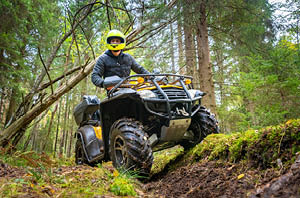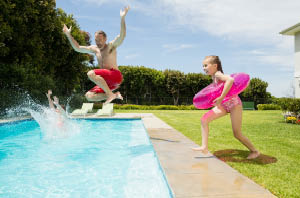How to Prevent Head Injuries During Outdoor Activities
Warm weather calls us outdoors—to biking trails, hiking paths, water parks, and playgrounds.
But while summer fun boosts physical health, it also comes with increased risk of traumatic brain injuries (TBIs).
According to the CDC, outdoor activities in the summer lead to a significant rise in head injuries, especially among children and young adults. Fortunately, most of these injuries are preventable with the right knowledge and precautions.
Here’s how you can enjoy all that summer has to offer—without putting your brain at risk.
Why Summer Increases Brain Injury Risks
Summer activities like biking, skateboarding, water sports, and even yard games naturally raise the chance of falls or collisions.
Some factors that contribute to higher injury rates include:
- Increased outdoor playtime and sports participation
- Higher use of recreational equipment (bikes, scooters, trampolines)
- More unsupervised activity among children and teens
- Dehydration or heat exhaustion leading to impaired coordination
Protecting your brain should be a priority—not just in extreme sports but during everyday summer fun.
Simple Tips to Keep Your Brain Safe This Summer

- Always Wear a Helmet
- Helmets reduce the risk of serious brain injury by up to 88% in activities like biking and skating.
- Choose a properly fitted, activity-specific helmet (biking helmets are different from skateboarding helmets!).
- Replace helmets after any significant impact or every 5 years.
- Check Your Gear
- Make sure bikes, scooters, skates, and sports equipment are in good working condition.
- Worn brakes, loose wheels, or faulty straps can increase accident risks.
- Stay Hydrated and Cool
- Dehydration can cause dizziness and poor reaction times, leading to falls.
- Drink water regularly, especially during long outdoor play or physical activity.
- Use Safe Play Practices
- Designate play areas away from busy streets.
- Supervise younger children and teach older kids about traffic and road safety.
- Be cautious on unfamiliar trails, especially when hiking or mountain biking.
- Watch for Concussion Signs
- After a fall or collision, be alert for symptoms like headache, confusion, dizziness, nausea, or vision changes.
- If you notice any of these signs, stop activity immediately and seek medical evaluation.
Less Known (But Important) Summer Brain Injury Facts

- Water Safety: Diving accidents are a leading cause of TBIs during summer. Always dive feet first into unknown waters.
- ATVs and Motorized Scooters: Head injuries are common in recreational vehicle accidents. Helmets are critical here, too.
- Heatstroke and Brain Function: Prolonged heat exposure without hydration can cause heatstroke, impairing cognitive function and increasing injury risks.
Brain-Boosting Foods for Outdoor Adventures

Supporting your brain health isn’t just about gear—it’s also about what you fuel your body with. Before heading outdoors, pack snacks rich in:
- Omega-3s: Nuts, flaxseeds, and salmon jerky (boosts brain resilience).
- Antioxidants: Fresh berries (protects brain cells).
- Hydration Heroes: Watermelon and cucumbers (keep the brain hydrated).
- Electrolyte Replenishers: Bananas (replenish potassium and maintain nerve function).
Smart food choices can keep your brain sharp, focused, and better able to respond quickly during activities.
Prioritize Brain Health Year-Round
At the Minneapolis Clinic of Neurology, we believe prevention is powerful. Whether it’s helmets, hydration, or healthy habits, small changes can make a big difference in protecting your brain this summer—and every season.



